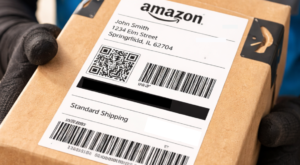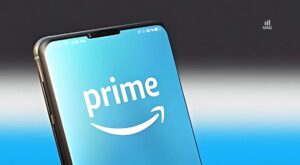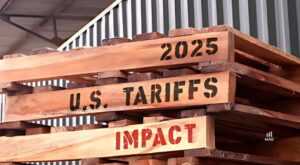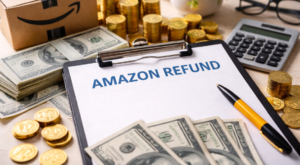
Controversial products on Amazon are nothing new, and the latest debate centers on 51st state merchandise.
Despite Amazon’s public assurances that its policies effectively prevent polarizing and offensive products from being sold on its platform, troubling exceptions continue to surface. The latest example, 51st state merchandise, has ignited outrage and debate among Canadians, who view it as an affront to their national sovereignty.
This incident is just one of many where Amazon’s content gating has failed, allowing contentious products to slip through. Worse still, Amazon itself has, at times, been the source of such controversy, creating and selling products that spark backlash.
Controversial products on Amazon: 51st state merchandise
Amazon faces a wave of backlash after products promoting the idea of Canada becoming the 51st U.S. state appeared on its platform. According to a report by CBC News, these items, including t-shirts, hats, and stickers, have triggered widespread outrage among Canadians.
It appears that several businesses are eager to profit from the controversy surrounding U.S. President Trump’s remarks about turning Canada into the 51st state, a Toronto.com article noted.
Public outrage and a growing petition
Ontario resident Sue Williams-Dunn initiated a petition in February, calling the products “a threat to our autonomy and identity as Canadians.” The petition, as of April 2nd, had amassed over 61,000 signatures.
A simple search for “51st state” on Amazon’s website brings up a variety of items, including t-shirts reading “Make Canada Great Again,” stickers featuring the Canadian map overlaid with the American flag, and hats labeling Canada as “the 51st state of America.” The controversy has further fueled a wave of “buy Canadian” sentiment, particularly amid ongoing trade tensions between Canada and the U.S.
Experts weigh in on Amazon’s motivations
Retail experts argue that Amazon’s approach to such controversies is largely profit-driven. “Amazon loves money,” said Daniel Tsai, an adjunct professor of law and business at the University of Toronto and Toronto Metropolitan University. He noted that the platform thrives on selling a vast range of products without necessarily considering their political implications.
Marketing professor David Amos from Capilano University added that Amazon is selling products on both sides of the debate, with listings that also push back against the annexation rhetoric, such as hats reading “Canada is not for sale.” While this may indicate an attempt at neutrality, some critics believe it could still damage Amazon’s brand image among Canadians, particularly in light of other controversies, such as recent warehouse closures in Quebec.
Not the first controversial product on Amazon
The “51st state” merchandise is just the latest in a series of controversial products that have appeared on Amazon. In July 2024, a T-shirt bearing the phrase “The Only Good Trump Is a Dead One” was available for purchase on the platform, just days before the assassination attempt on former President Donald Trump.
According to Fox Business, the shirt, listed for $19.99, was sold in multiple colors and sizes through Amazon’s Fashion section. Following media scrutiny, Amazon removed the listing, citing a violation of its guidelines. While that Trump-related listing has long been taken down, the “51st state” merchandise is not seeing any positive news anytime soon.
For sellers, the removal of controversial product listings highlights the importance of carefully selecting products that align with Amazon’s offensive and controversial materials policies to avoid potential account suspensions or lost revenue. Whether choosing products independently or with the guidance of an Amazon agency, understanding what sells best and what risks removal is crucial for long-term success on the platform.
Will Amazon Take Action?
Amazon"Amazon does not allow products that promote, incite or glorify hatred, violence, racial, sexual or religious intolerance or promote organizations with such views."
Amazon has long positioned itself as a marketplace that prioritizes selection, even when it comes to controversial and divisive products. While the company has policies in place to prohibit items that promote hate, violence, or intolerance, enforcement remains a challenge.
Amazon says it updates its offensive and controversial product policies based on current events and expert input, with a global team using automated tools and manual reviews to enforce them. Despite this, products like the “51st state” merchandise continue to appear, raising questions about the platform’s enforcement efforts.
Amazon argues it balances free expression with customer sensitivities, acknowledging that some disagreeable products may still comply with its policies. Critics question whether its oversight is sufficient or if marketplace diversity and profitability take priority over public concerns.
Past incidents show that Amazon rarely removes controversial products unless there is significant public pressure or financial consequences. While petitions and media coverage have occasionally led to product takedowns, Amazon’s track record suggests that unless sales are impacted, these items may remain available.
Whether the 51st state merchandise will be removed remains uncertain, but if history is any indication, it will take more than complaints to push Amazon into action.
But what if Amazon is the one selling the controversial products?
Amazon has long positioned itself as a neutral marketplace, enforcing policies against offensive and controversial products. However, critics argue that these rules become murky when Amazon itself is the seller. Recent allegations suggest that the company may not hold its own retail operations to the same strict standards imposed on third-party sellers.
Lindey Glenn, in a recent YouTube video, highlighted how Amazon has been accused of copying successful third-party products, undercutting prices, and even using seller images without permission. These accusations raise a troubling question: If Amazon is profiting directly from controversial or copied products, can it be trusted to regulate them fairly?
Amazon’s private-label brands, such as Amazon Basics and Solimo, have been at the center of these debates. According to a CNBC report, the company has leveraged internal data to create near-identical versions of best-selling products.
A striking example is Allbirds, the eco-friendly sneaker company that saw Amazon launch a nearly identical wool shoe at a lower price. This pattern of alleged product replication has fueled concerns that Amazon prioritizes sales over ethical business practices.






